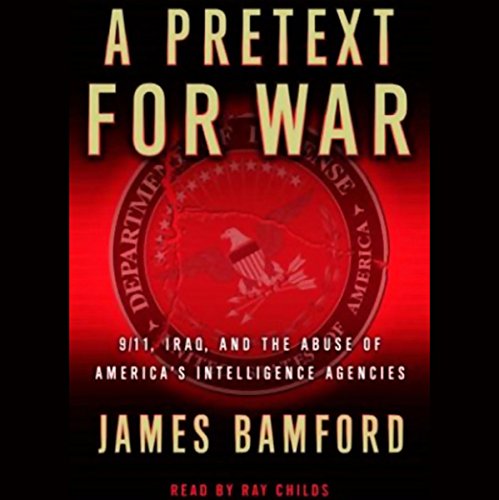
A Pretext for War
9/11, Iraq, and the Abuse of America's Intelligence Agencies
カートのアイテムが多すぎます
カートに追加できませんでした。
ウィッシュリストに追加できませんでした。
ほしい物リストの削除に失敗しました。
ポッドキャストのフォローに失敗しました
ポッドキャストのフォロー解除に失敗しました
聴き放題対象外タイトルです。Audibleプレミアムプラン登録で、非会員価格の30%OFFで購入できます。
-
ナレーター:
-
Ray Childs
-
著者:
-
James Bamford
このコンテンツについて
From the mishandling of the pre-9/11 threat to the unproven claims about Iraq's weapons of mass destruction, Bamford argues that the Bush administration has co-opted the intelligence community for its own political ends, and at the expense of American security. Bamford makes the case that the Bush administration's Middle East policy decisions, from overthrowing Saddam to ignoring the situation of the Palestinians, are driven by long-held beliefs and goals of an elite group of conservatives inside and outside of government.
A Pretext for War hones in on the systematic weakness that led the intelligence community to ignore or misinterpret evidence of the impending terrorist attacks of 9/11, a failure rooted in the refusal to acknowledge the central role of the Palestinian cause in igniting Arab rage against the United States. Compounding the errors, the Bush administration's immediate response to 9/11 was to call for an attack on Iraq, and it subsequently invented justifications for the preemptive war that has ultimately left the United States more vulnerable to terrorism.
A Pretext for War is an unprecedented, utterly convincing expose of the most secretive administration in history.
©2004 James Bamford (P)2004 Random House, Inc. Random House Audio, a division of Random House, Inc.批評家のレビュー
"Much of the information and many of the theories in Mr. Bamford's book will be familiar to readers from earlier magazine and newspaper articles, and other books....But Mr. Bamford unearths new details about everything from the identity of one of the disclosed locations used by Vice President Dick Cheney after 9/11...to the failures of a special CIA unit charged with tracking Osama bin Laden, and he connects the many dots, both old and new, to create a vivid, unsettling narrative." (The New York Times)



